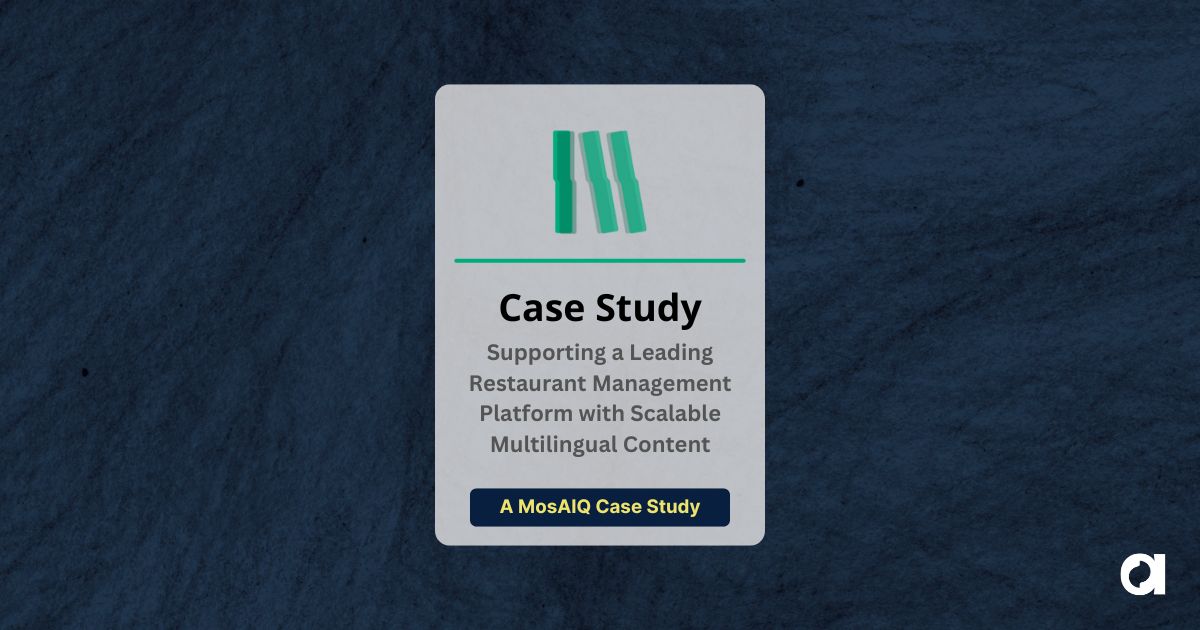If you’re dealing with international markets, chances are you’re already doing business in Japan. It’s a vibrant market, but one that often leaves a lot of foreign companies wondering why their Japanese websites aren’t performing. So, to help you answer that question, we’re joined by Issey Morita, an SEO consultant from Japan, who’s here to share his top tips on succeeding in Japan.
Is there anything we need to know about the Japanese language before we start SEOing?
Japan is a very diverse country, with over 100 dialects spoken across the country. Don’t let that put you off, though – you only need to consider standard Japanese when you’re dealing with Japanese SEO.
One thing you do have to keep in mind, however, is that Japanese people don’t tend to have very high levels of English. This means that all of your content has to be in Japanese, as even a single word of English could mean that people leave your website. It’s also vital that you have a Japanese phone number, and Japanese-speaking support staff ready to help as English simply isn’t an option.
Japanese has three alphabets
There are three alphabets in Japanese, and these often cause a lot of confusion especially when it comes to keyword research. Hirigana is the basic phonetic alphabet, with 46 characters, which are simple and curvy like this – わたし.
Next, we have Kanji, which historically are derived from ancient Chinese characters. This alphabet helps shorten the number of symbols needed in a word, and looks like this – 私.
Finally, we have Katakana, another phonetic alphabet, which is used mainly to write foreign words, and has sharp lines and angles like this – ワタシ.
Just to make things even more complicated, the Latin alphabet is used a lot nowadays, especially for words like IT (information technology).
The reason why these alphabets are so important is because there are different ways of saying something like a “bag”:
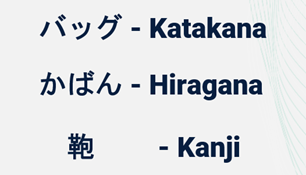
And these words all mean egg!

When you’re doing keyword research and Japanese SEO, which alphabet should you be using? Unfortunately, there’s no simple answer as it really depends on the words as we’ll take a look at in a bit.
Making sure your site sounds natural
In English, we wouldn’t think twice about using pronouns like I/We, etc. However, in Japanese they’re not so commonly used, and they’re actually a big giveaway for Japanese consumers. So, in order to make sure your website sounds like it’s written for Japanese consumers, make sure your pronoun usage follows the norms in Japan.
Spacing
In Japanese, there are no spaces between words, however they often show up in keyword research tools. It’s important when this happens to know that even though they look like 2 separate keywords, they aren’t, so don’t be fooled by the fact they have different search volumes, too. When this happens, make sure you go for the version without the gap, which normally has the highest search volume, and dismiss the keyword with the gap as you don’t need to use both.
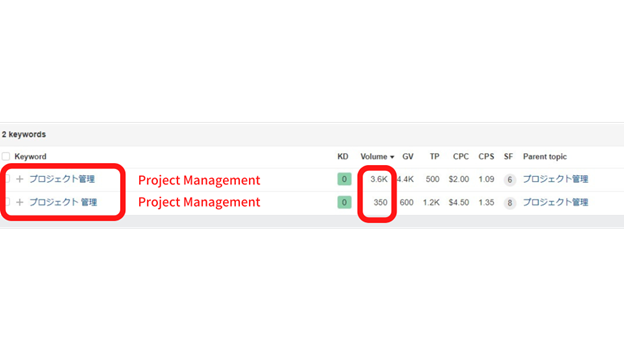
How culture impacts buyer behavior and Japanese SEO
Pricing
Sadly there is no rule of thumb here. When it comes to pricing there’s a real mix of consumers in Japan. Some are looking for high-end goods, and others are looking for cheaper products.
Reviews
Japanese people love reviews and comparisons. The majority of keywords actually include +reviews (レビュー or 評価), +lists (リスト or 一覧), +word of mouth (口コミ) or +comparisons (比較). When you look at Japanese SERPs, they’ll be full of comparison blogs, so it’s important you have these (even if it means writing about your competitors!).
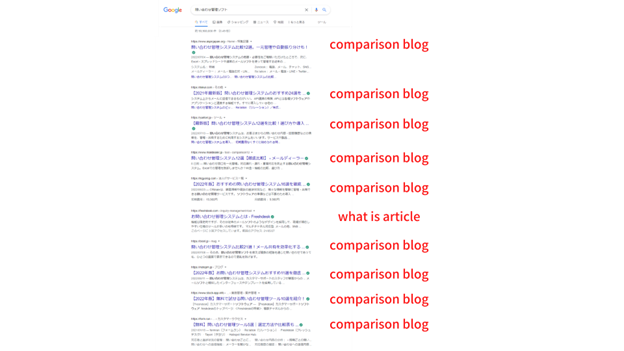
Make sure you are also on Japanese review sites.
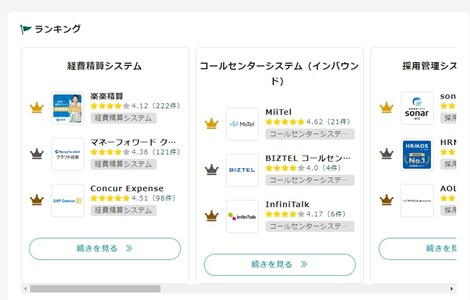
Why foreign sites aren’t ranking
The most common reason why foreign sites aren’t ranking is because their Japanese SEO strategy is a carbon copy of their English strategy, and also because the wrong keywords have been used in the content. This all links back to our four alphabets.
Here you can see the keywords for “social media”. By choosing the result at the top, you get much better search volumes and it sounds more natural, even though ソーシャルメディア is what you’d get if you’re translating your keywords from English.
SNS(110,00)
ソーシャルメディア(6,600)
And you can see it below with “social media marketing”.
SNSマーケティング(9,900)
ソーシャルメディアマーケティング(390)
This is why it’s vital you’re not just translating your English keywords because while neither of these translations are wrong, there’s a big difference in search volume.
Here’s one final example for the keyword “mobile app”, just to illustrate that a bit more.
スマホアプリ(8,100)
モバイルアプリ(1,000)
You can normally tell if you have a keyword issue on your site if your product is popular in Japan, but your traffic is very low. Another tip is that if you find two keywords with very similar search volumes, try creating a separate landing page for each keyword and A/B test which one works best.
Another issue could be that your products aren’t well-known in Japan yet, or there’s already a Japanese solution in place.
Japanese SEO & tech culture
Japan is a massive tech market and consumers are spoilt for choice. If you’re offering a product that has a domestic competitor, it’s really important that you find different ways to differentiate yourself, as Japanese consumers will always prefer a Japanese option when it comes to service and language, etc.
To do that, you can invest in the following:
Branding
You need a really strong brand presence to succeed in Japan, so make sure that you’re investing in Japanese PR as it will help boost your Japanese SEO efforts.
Sales
It’s vital that you have a Japanese sales representative who knows the language and business culture. Face to face communication and word of mouth are really important in Japan, and you need to make sure that you follow up with new leads often.
Better tech solution
If you have better functionality or more users than your competitors, this will help you be successful in Japan.
Hire an agency
There are lots of tech marketing distributors in Japan, so getting an agency to help you in this area is really useful for foreign brands.
Local channels that’ll boost your Japanese SEO
There are a number of local channels that are very specific to Japan that are worth using.
Line ads
Line is a chat tool used by over 92 million people. It’s got plenty of ad solutions, especially for B2C solutions.
Yahoo! Ads
Most SEOs and PPC managers tend to forget Yahoo, but it’s really important in the PPC space. Most Japanese companies split their PPC budgets 50/50 between Google and Yahoo, and the best thing is that foreign companies aren’t really using it. So, if you invest in Yahoo PPC, you’ve instantly got an advantage.
Note
Note is a Japanese blogging service that has over 63 million monthly visits. It is a great choice if you’re looking for a blogging platform like Medium.
Tech media
Here are some popular tech media sites, which would be great for foreign tech companies expanding into Japan.
https://internet.watch.impress.co.jp/
https://atmarkit.itmedia.co.jp/
So as you can see, the world of Japanese SEO is not as easy as you probably first assumed. That’s why it’s so important you have a native Japanese speaker help you create a market-specific Japanese SEO strategy, which is where of course Argos can help.
WATCH ISSEY’S VIDEO
About Issey
Issey is a Japanese SEO consultant from Yokohoma. He’s been working in content and SEO for well over a decade, and has a passion for writing. His main area of expertise is helping foreign companies understand the complexities of the Japanese SEO market.
 Argos Multilingual
6 min. read
Argos Multilingual
6 min. read
As your company expands globally, it’s essential to consider using internationally accepted communication channels. Companies can easily reach out to potential customers in multiple countries and regions using the following platforms. Also, establishing your business presence on international communication channels can help create trust and understanding between you and your customers. To make these connections, […]

 Dan Koenig
5 min. read
Dan Koenig
5 min. read
For those in the life sciences field, it’s no secret that artificial intelligence (AI) has stirred the industry in recent years. Whether we want to accept it or not, AI is quickly becoming integral to life sciences research and development. From streamlining drug discovery to predicting disease outbreaks, AI is changing how life-saving treatments are […]









